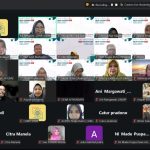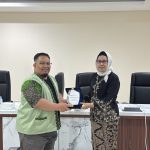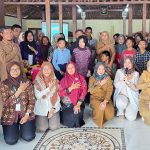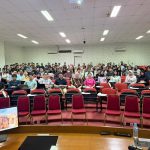Center for Bioethics and Medical Humanities just held the Raboan Discussion Forum on (13/07). On that occasion, the title raised was Learning Professionalism Through Role Modeling. The material was presented by the speaker: Prof. dr. Gandes Retno Rahayu, M.Med.Ed., Ph.D. Meanwhile, the moderator is dr. Wika Hartanti MIH.
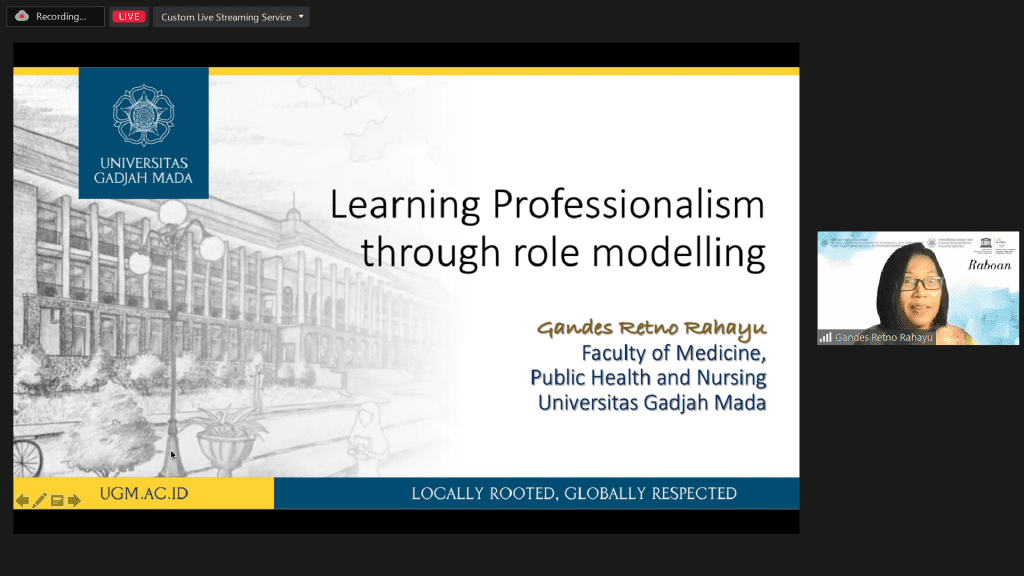
In the rapid development of medical science, there are still many teachers who do not have the sensitivity to be professional. This is the impact of the old view which assumes that professionalism is obtained during the learning process. Prof Gandes explained that nowadays professional attitude of a doctor is an aspect that needs to be taught and taught as a specific topic and taught explicitly.
To teach professionalism Prof. Gandes the importance of understanding the right learning method for medical students. One of the effective methods to develop professionalism is role modeling. Prof. Gandes revealed the four processes that occur in the role modeling method. The first is to inspire, then to learn, to follow professionally, and the last is to portray oneself.
Prof. Gandes explained that there are three characteristics of a role model. The first is to have superior competence. Both have humanistic personalities such as interpersonal skills, positive outlook, commitment to growth, and leadership. The third is effective teaching skills.
At the end of his presentation, Prof Gandes revealed that role modeling is one of the important teaching tools to teach professionalism in the field of medicine and health professional education.
“Teachers must be aware of being role models and the impact of what they emulate” Said Prof. Gandes.
Download material here
Learning Prodessionalism Through Role Modelling – Prof. dr. Gandes Retno Rahayu, M.Med.Ed., Ph.D
Watch full video here

